Volunteering in cultural festivals offers a unique opportunity to immerse yourself in vibrant, community-driven events that celebrate diversity and foster connections. Whether you’re passionate about art, music, history, or community building, volunteering at cultural festivals near you can be a rewarding experience that goes beyond typical volunteer roles. From assisting with event logistics to engaging with attendees, festival volunteers play a crucial role in ensuring these events run smoothly while creating lasting memories for participants and organizers alike.
This guide delves into the world of festival volunteering, exploring everything from its definition and responsibilities to the skills it requires and how it compares to other volunteering opportunities. We’ll also examine the influence of cultural backgrounds on behavior, potential barriers to volunteering, and the mental health effects it can have. By understanding these aspects, you can decide if volunteering at cultural festivals aligns with your interests and strengths. Whether you’re considering it as a new hobby or seeking ways to contribute to your local community, this article provides valuable insights to help you get started.
Key Takeaways
- Cultural Values Shape Volunteering Activities: Cultural values drive individuals toward volunteering activities that resonate with their community’s beliefs, such as family-oriented or faith-based efforts.
- Collectivism vs. Individualism in Volunteering: Collectivist societies foster higher participation, viewing volunteering as a collective duty, while individualist cultures see it as a personal choice.
- Cross-Cultural Collaboration Enhances Engagement: Adapting volunteer opportunities to cultural preferences and fostering cross-cultural collaboration can significantly boost participation and satisfaction.
- Understanding Barriers to Volunteering: Addressing issues like lack of time, awareness, and financial constraints, along with highlighting flexibility and support, encourages more individuals to volunteer.
- Cultural Influences on Mental Health Perceptions: Cultural backgrounds shape how mental health is perceived, treated, and supported, impacting help-seeking behavior and access to resources.
- Mental Health Literacy and Help-Seeking Behavior: Higher mental health literacy correlates with greater willingness to seek help, emphasizing the importance of cultural awareness in mental health initiatives.
- Cultural Sensitivity in Volunteer Organizations: Implementing culturally sensitive training and adaptable programs enhances inclusivity and engagement, respecting diverse community needs.
- Impact of Migration on Mental Health: Migration often leads to mental health challenges due to cultural norm conflicts, underscoring the need for supportive acculturation strategies.
- Symptom Expression Across Cultures: Cultural differences influence how mental health symptoms are expressed and diagnosed, affecting timely intervention and treatment approaches.
- Gender Roles and Mental Health Outcomes: Societal gender expectations impact mental health experiences, with unique challenges faced by different genders in seeking help and managing stress.
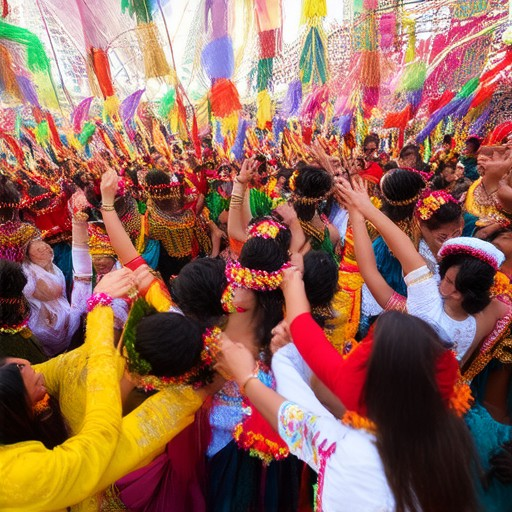
Festival Volunteer
A festival volunteer is an individual who contributes their time and effort to support the organization and execution of various festival events. Festivals encompass a wide range of activities, from music performances and art exhibitions to food fairs and educational seminars. Volunteers play a pivotal role in ensuring these events run smoothly, from setup and management to cleanup and guest interaction.
Festival Volunteer Roles and Responsibilities
Volunteers in festivals typically take on diverse roles, which may include:
- Event Setup and Breakdown : Assisting with the installation of equipment, tents, stages, and signage.
- Crowd Management : Monitoring attendee behavior and ensuring safety protocols are followed.
- Guest Services : Welcoming visitors, distributing programs, and answering questions.
- Merchandise Sales Assistance : Supporting vendors in selling products and ensuring a smooth transaction process.
- Traffic Direction : Guiding attendees to various event locations and managing vehicle access.
- Emergency Response : Being prepared to handle medical situations or security concerns.
- Clean-Up Crew : Disposing of waste and restoring the event area to its original condition post-event.
- Documentation : Taking photos or videos to document the event for future reference.
How to Become a Festival Volunteer
If you’re interested in volunteering at a festival, consider the following steps:
- Research Festivals : Identify local or international events that align with your interests or skills.
- Apply Online : Many festivals have online portals for volunteer sign-ups.
- Contact Organizers : Reach out directly to event organizers to express your interest.
- Attend Orientation : Participate in training sessions to familiarize yourself with the event’s operations.
- Commit to a Role : Choose a position that matches your strengths and availability.
Benefits of Volunteering at Festivals
Volunteering at festivals offers numerous advantages, including:
- Community Contribution : Supporting local events and causes you care about.
- Skill Development : Gaining experience in event planning, crowd control, and teamwork.
- Networking Opportunities : Connecting with fellow volunteers, vendors, and attendees.
- Personal Growth : Enhancing your social skills and confidence through interactive environments.
By contributing your time and efforts, festival volunteers help create memorable experiences for attendees while fostering community engagement and event success.
Is It Worth It to Volunteer at Film Festivals?
Volunteering at film festivals can be a rewarding experience, offering unique benefits that go beyond the opportunity to attend events. Here’s a breakdown of the key considerations:
Pros of Volunteering at Film Festivals
- Free Admission : One of the most appealing aspects is the chance to attend films and events for free, which can be costly otherwise.
- Better Camping and Perks : Volunteers often receive improved camping facilities, access to exclusive areas, and sometimes meal tokens.
- Networking Opportunities : Connect with filmmakers, industry professionals, and fellow film enthusiasts, which can open doors to future opportunities.
- Skill Development : Gain hands-on experience in event management, organization, and communication, valuable for career growth.
- Contribution to Cause : Support the arts and culture by contributing to the success of festivals that promote emerging talent.
Cons and Considerations
- Time Commitment : Volunteering requires dedication, often involving long hours during peak festival times.
- Limited Flexibility : Scheduling conflicts may arise due to the nature of festival events.
- Physical Demands : Depending on the role, volunteers may need to lift equipment or stand for extended periods.
How to Decide
Consider your motivations and goals. If you’re passionate about film and enjoy supporting creative endeavors, volunteering can be fulfilling. For those seeking networking opportunities or hands-on experience, it’s a valuable investment.
Resources to Explore
For more insights into volunteering at film festivals, explore Inxchan ’s travel and volunteer guides, which offer tips and stories from experienced volunteers. Additionally, check out Film Festival Volunteers for detailed information on getting started.
By weighing these factors, you can determine if volunteering aligns with your interests and lifestyle, making it a worthwhile decision for personal growth and contribution to the film community.
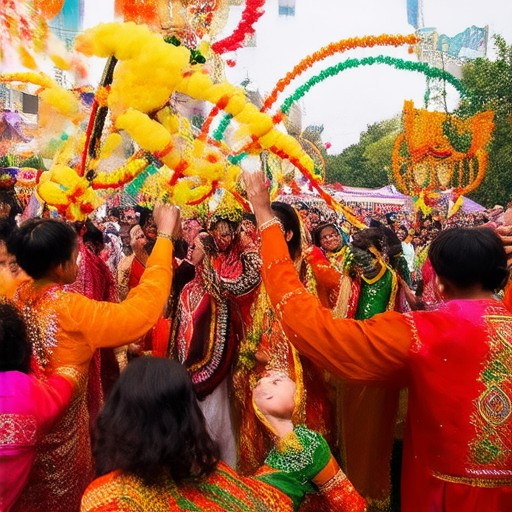
What Does a Volunteer Do in an Event?
A volunteer plays a crucial role in ensuring the smooth operation of an event, contributing to its success while often behind-the-scenes. Their responsibilities vary depending on the type of event and the needs of the organization.
Key Roles of a Volunteer
- Greeting Attendees: Volunteers may be responsible for welcoming participants, checking them in, and assisting with registration processes. This includes distributing name tags, guiding visitors, and answering questions.
- Assisting with Setup: Before the event begins, volunteers help set up the venue, arranging materials, furniture, and equipment. This ensures everything is ready for the event day.
- Monitoring the Event: During the event, volunteers may oversee different areas, manage guest flow, and handle any issues that arise. This includes coordinating with staff and ensuring safety protocols are followed.
- Supporting Staff: Volunteers often work alongside event organizers and staff, providing assistance with tasks like taking photos, distributing materials, or collecting feedback from attendees.
- Event Coordination: In larger events, volunteers might take on more specialized roles, such as managing schedules, overseeing logistics, or coordinating with vendors and sponsors.
Types of Events Where Volunteers Are Commonly Needed
- Conferences and seminars
- Festivals and exhibitions
- Charity events and fundraisers
- Sporting events and races
- Cultural or educational gatherings
Becoming a Volunteer
If you’re interested in volunteering, many organizations look for dedicated individuals who are reliable, punctual, and willing to take on varied tasks. Volunteering can be a great way to gain experience, meet new people, and contribute to a cause you care about.
By fulfilling these roles, volunteers help create memorable experiences for everyone involved, ensuring the event runs smoothly and achieves its goals.
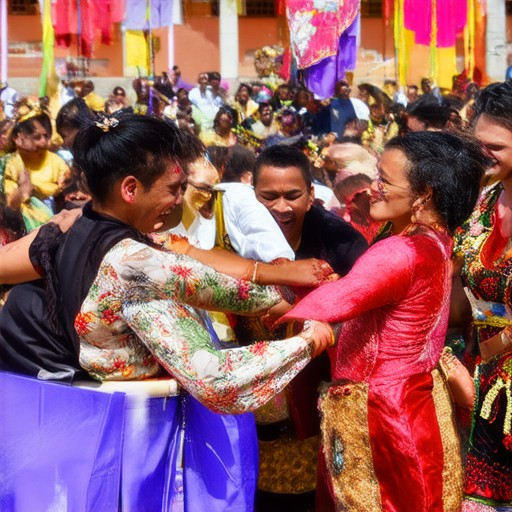
Does Cultural Background Affect Volunteering Behavior?
Cultural background significantly influences volunteering behavior, shaping attitudes, preferences, and approaches to service work. Understanding these influences helps explain why different communities engage in volunteering in unique ways.
Values and Priorities
Cultural values often dictate the types of volunteering activities people pursue. For instance:
- Communities with strong family-oriented cultures may prioritize volunteering efforts that benefit children and families.
- Religious communities often focus on volunteering activities aligned with their faith-based missions.
- Cultural traditions may also influence the frequency and regularity of volunteering, with some cultures valuing consistent involvement more than others.
Social Norms and Expectations
Social norms within a culture can encourage or discourage volunteering. Examples include:
- In collectivist societies, volunteering is often seen as a collective responsibility, leading to higher participation rates.
- In individualist cultures, volunteering may be viewed as a personal choice rather than a societal obligation.
- Traditional gender roles can also shape volunteering behavior, with certain genders being more likely to participate in specific types of volunteer work.
Motivations and Barriers
Cultural factors can act as motivators or barriers to volunteering:
- Cultural beliefs about reciprocity may lead to volunteering as a way to gain social connections or status.
- Some cultures may view volunteering as a duty, while others see it as an individual growth opportunity.
- Cultural stigmas or taboos around certain types of service work can discourage participation.
Examples Across Cultures
Different cultures approach volunteering uniquely:
- In many Western countries, volunteering is often associated with non-profit organizations and formal programs.
- In Eastern cultures, volunteering may take the form of informal community services or familial responsibilities.
- Certain cultural practices, like festivals or celebrations, sometimes incorporate volunteer elements to benefit the community.
Impact on Volunteering Organizations
Understanding cultural influences helps organizations better engage diverse audiences:
- Cultural sensitivity training can improve outreach and inclusivity in recruitment efforts.
- Adapting volunteer opportunities to align with cultural preferences can increase participation and satisfaction.
- Cross-cultural collaboration can foster richer, more inclusive volunteer experiences.
In summary, cultural background plays a crucial role in shaping volunteering behavior, influencing everything from motivation to the types of activities people choose to participate in. Recognizing and respecting these differences can help create more inclusive and effective volunteer opportunities.
What Discourages People from Volunteering?
Volunteering is a rewarding activity that benefits both individuals and communities, yet many people may feel discouraged from participating due to various barriers. Here are some common factors that can prevent individuals from volunteering:
- Lack of Time: Many individuals struggle with balancing work, family responsibilities, and personal time, leaving little room for volunteering.
- Unawareness of Opportunities: A lack of information about available volunteer roles can make it difficult for people to get involved.
- Geographical Limitations: Not knowing where volunteer opportunities are located can be a barrier, especially if someone prefers to volunteer locally.
- Health or Physical Limitations: Certain health conditions or physical limitations may restrict participation in traditional volunteer roles.
- Financial Constraints: Concerns about costs, such as transportation or materials, can sometimes deter potential volunteers.
- Fear of Commitment: Uncertainty about the time commitment or the impact of their efforts can lead to hesitation.
- Societal Perceptions: Misconceptions about volunteering, such as the belief that it’s only for certain groups like retirees or students, can limit participation.
- Recognition and Appreciation: A lack of acknowledgment for volunteer work can make individuals feel undervalued and less motivated to continue.
To overcome these barriers, it’s important to highlight the flexibility of volunteer opportunities, the variety of roles available, and the support systems in place to assist individuals. Many organizations also offer remote or flexible options, making it easier for people to participate regardless of their circumstances. By addressing these concerns and promoting the benefits of volunteering, more individuals can be encouraged to take part in meaningful and impactful activities.
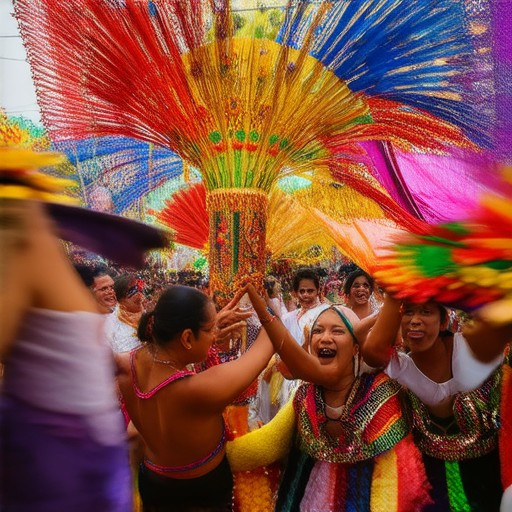
How Does Cultural Background Affect Mental Health?
Cultural background plays a profound role in shaping mental health perceptions, behaviors, and outcomes. It influences how mental health is understood, treated, and responded to within different communities.
- Stigma and Help-Seeking Behavior: Cultural norms often dictate whether mental health issues are openly discussed or stigmatized. In some cultures, seeking professional help for mental health may be discouraged, leading individuals to rely on alternative coping mechanisms or family-based support instead.
- Mental Illness Perception: The meaning and interpretation of mental illness vary widely across cultures. In some societies, mental health conditions may be viewed through a spiritual or supernatural lens, while others may attribute symptoms to biological factors or environmental stressors.
- Coping Mechanisms: Cultural practices and traditions often shape how people manage stress and emotional difficulties. For example, some cultures may emphasize collective responsibility, while others may prioritize individualism, influencing the types of support sought during challenging times.
- Access to Resources: Availability and accessibility of mental health resources can vary significantly by culture. In some regions, there may be limited awareness of mental health services, while in others, there is a strong emphasis on mental wellness programs and initiatives.
- Social Support Systems: Cultural background determines the strength and reliability of social support networks. Strong community ties in some cultures can provide extensive emotional support, while others may experience isolation or lack of understanding from their social circles.
- Migration and Acculturation: For individuals who migrate to a different culture, the process of acculturation can lead to mental health challenges. Adjusting to new norms, values, and lifestyles may result in feelings of alienation or stress, particularly if there’s a conflict between the individual’s cultural background and the host society’s expectations.
- Expression of Symptoms: Cultural differences in symptom expression can affect diagnosis and treatment. What may be considered normal grief or stress in one culture could indicate a mental health condition in another, potentially delaying appropriate intervention.
- Gender Roles and Expectations: Societal expectations tied to gender roles can influence mental health outcomes. For instance, men in some cultures may face stigma for expressing emotional distress, while women might encounter unique challenges related to societal pressures and gender-based discrimination.
- Mental Health Literacy: The level of education and awareness about mental health within a culture can impact help-seeking behavior. Higher mental health literacy tends to correlate with greater willingness to seek professional help and improved mental health outcomes.
Cultural background thus influences every aspect of mental health, from perception and expression to access to care and social support. Understanding these dynamics is essential for developing inclusive and effective mental health interventions that cater to diverse populations.




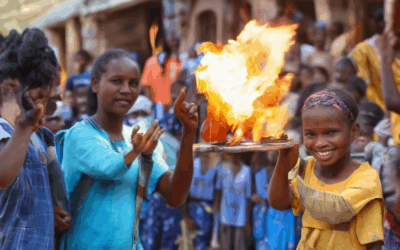
0 Comments